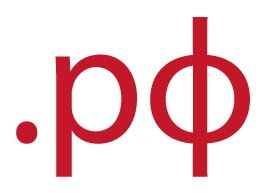Revised IDN ccTLD Fast Track Process Implementation Plan
Following the ICANN Board’s approval on 8 December 2011 of the amendment to the IDN ccTLD Fast Track Process Implementation Plan, ICANN is providing this notice of publication for the Revised Implementation Plan. This amendment was considered following guidance received from the ccNSO during the ICANN meeting in Dakar, Senegal.
Two versions are posted: 1) the revised IDN ccTLD Fast Track Process Implementation Plan (http://www.icann.org/en/topics/idn/fast-track/idn-cctld-implementation-plan-15dec11-en.pdf [PDF, 851 KB]) and 2) a version that tracks the changes from the previous version (http://www.icann.org/en/topics/idn/fast-track/idn-cctld-implementation-plan-redline-15dec11-en.pdf [PDF, 902 KB]). The community should take note that the original version of the IDN ccTLD Fast Track Process Implementation Plan is now archived and superseded by the Revised Implementation Plan.
Background
On 26 October 2011, the ccNSO Council approved a resolution and communicated it in a letter from ccNSO Chair to ICANN Board Chair asking the Board to direct staff to amend the relevant sections of the IDN ccTLD Fast Track Implementation Plan. The amendment is to address specific cases when a requested IDN ccTLD string may be confusingly similar with the two-letter ASCII ccTLD corresponding to the same country or territory.
This work was developed out of the ccNSO Council Resolution from the ICANN meeting in San Francisco in March 2011. This resolution requested a sub-group of the IDN ccPDP Working Group 1 to develop, as soon as possible, guidelines (within the framework of the existing rules for the Fast Track) to improve the predictability of the evaluation process relating to string confusion as defined in the IDNC WG Final Report and the Final Implementation Plan, as adopted by the ICANN Board in November 2009.
ICANN conducted an initial review of the IDN ccTLD Fast Track Process and its implementation between October 2010 – January 2011. A summary and analysis was published in February and the Board acknowledged the Fast Track review at the ICANN meeting in March 2011.
The IDN ccTLD Fast Track Process Implementation Plan was approved by the ICANN Board at its meeting in Seoul, Republic of Korea in October 2009. A link to the original Implementation Plan may be found at: http://www.icann.org/en/topics/idn/fast-track/idn-cctld-implementation-plan-16nov09-en.pdf [PDF, 498 KB]



 Dot VN, Inc., (http://www.dotvn.com) (OTC Trading Symbol: DTVI), an Internet and Telecommunications Company and the exclusive online global domain name registrar for the Country of Vietnam (“the Company” or “Dot VN”), announced today that since it’s official launch of the Vietnamese Native Language Internationalized Domain Names (“Vietnamese IDN”) on April 28, 2011, registrations have exceeded 294,000 domain names which surpasses the total number of standard Vietnamese ccTLD registrations.
Dot VN, Inc., (http://www.dotvn.com) (OTC Trading Symbol: DTVI), an Internet and Telecommunications Company and the exclusive online global domain name registrar for the Country of Vietnam (“the Company” or “Dot VN”), announced today that since it’s official launch of the Vietnamese Native Language Internationalized Domain Names (“Vietnamese IDN”) on April 28, 2011, registrations have exceeded 294,000 domain names which surpasses the total number of standard Vietnamese ccTLD registrations.